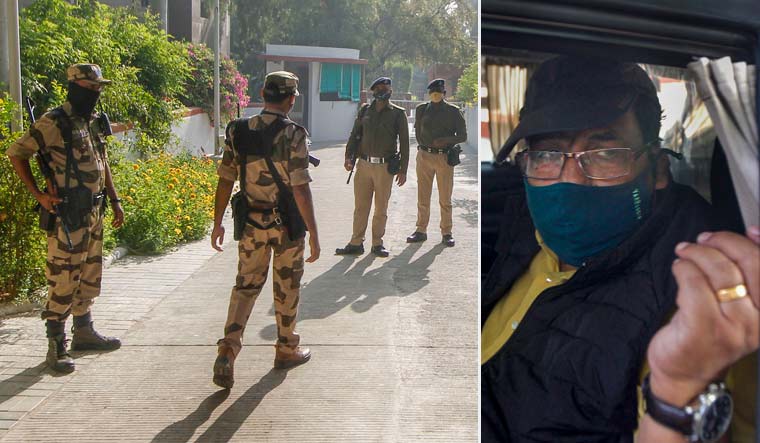A day after claiming that he was poisoned with arsenic over three years ago, top ISRO scientist Tapan Misra on Wednesday said it might have been due to his contribution in developing indigenous radar imaging satellites.
Talking to reporters at his residence here, Misra expressed suspicion that people who were afraid of losing orders from the Indian government might have been involved in the attack on him.
On Tuesday, Misra had claimed that he was poisoned with deadly arsenic trioxide on May 23, 2017, during a promotion interview at ISRO headquarters in Bengaluru.
"Fatal dose was probably mixed" with chutney along with Dosa, in snacks after lunch, he said.
Misra is presently working as Senior Advisor at ISRO and is superannuating at the end of this month.
He had earlier served as Director of Ahmedabad-based Space Application Centre of Indian Space Research Organisation (ISRO).
In a Facebook post titled 'Long Kept Secret', Misra further claimed that in July 2017, Home Affairs security personnel met him and alerted him of arsenic poisoning and helped doctors to focus on exact remedy.
Misra claimed he later suffered from health issues including severe breathing difficulty, unusual skin eruptions, skin shedding and fungal infections.
He also posted the medical report on the social media platform to claim he has been diagnosed with Arsenic toxication by the AIIMS, New Delhi.
"My contribution was in developing radar imaging satellites - RISAT, considered as a very high-grade technology. We can watch the earth's surface in any situation, be it day or night, using this system," he said on Wednesday.
"This radar system is 10 times costlier (than the indigenous one) if we buy it (from others)," Misra said.
"This system is useful for the military for its ability to capture images despite clouds and dust. So, if we develop such a system in our own country, it's obvious that others (who are selling it to India) will lose their business," he said when asked to pinpoint the exact reason behind the attack.
Misra is presently working as Senior Advisor at the ISRO and is superannuating at the end of this month.
He had earlier served as Director of Ahmedabad-based Space Application Centre of Indian Space Research Organisation (ISRO).
Misra said his decision to go public about the poisoning incident would create awareness and would serve as a "deterrence" for perpetrators behind such acts in the future.
"They (perpetrator) might have thought that I would spill the beans after my retirement. Hence, it is possible that a plan was made to eliminate me before I retire.
"But now, everyone knows what happened to me. This will serve as a deterrent. Media can now raise this issue if anything happens to me," Misra said.





